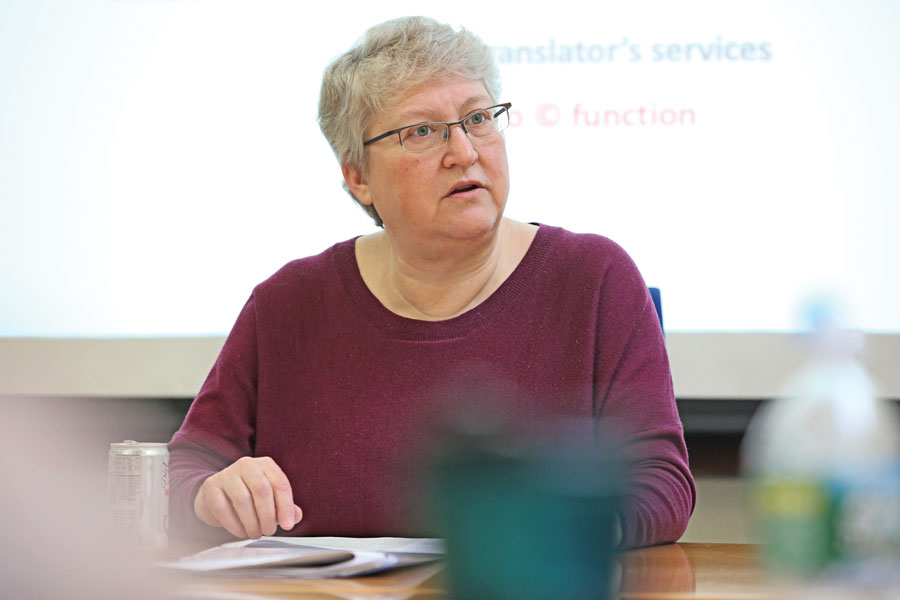Some folks who are bit by the theatre bug manage to suppress the symptoms for a time before finally succumbing. For Joan Channick, a career in law seemed like the escape hatch from her stage obsession, which began in her teens in the Chicago suburb of Highland Park and lingered into her adulthood via community theatre. But she says that by age 30 she realized theatre would have to be more than a sideline for her, because she loved it “more than anything else.”
So, 33 years ago, she entered Yale School of Drama’s theatre management program; she now serves as the program’s chair. In the intervening years she worked in executive roles at Baltimore Center Stage, Theatre Communications Group, International Theatre Institute, and Long Wharf Theatre. She learned a lot at each post but remembers in particular the influence of Peter W. Culman, Center Stage’s longtime managing director, whom she recalls as “a brilliant fundraiser, just because he was so interested in people.” As a deeply religious Catholic, Culman filled part of his seemingly full-time community engagement calendar with a visit to a different church every week, as well as calling subscribers in to meet with him for tea “to find out what engaged them about Center Stage.”
Channick’s own brand of community engagement has been serving on boards of non-theatre-related nonprofits and finding connection points between them and the work onstage. When in 2008 Long Wharf staged Anna Deavere Smith’s Let Me Down Easy, for example, the show was built in part with the cooperation of some 50 different organizations, ranging from a grassroots health care advocacy group to Yale Medical School, which in turn received private previews.
Her advice for students and successors: Follow her example, up to a point, but please don’t imitate her. “Be expansive—look beyond your own theatre and your own community,” she says. “Challenge yourself continually. Don’t be complacent. It’s not healthy for you, and it’s not healthy for your organization.” On the other hand, don’t “over-identify with faculty. There is a tendency in an educational environment for students to want to emulate us. I don’t want that. They should take what they can from my experience and make their own unique way in the field. Be your own kind of leader. I have worked with so many different leaders who are effective in very different and often idiosyncratic ways. So don’t imitate me!”
Her view of legacy is similarly self-effacing. While she enjoys introducing theatre history to each new generation, creating a sense of continuity and connection in the field over time, she adds, “My experience is that two years after you leave an organization, few people will remember that you were ever there. The changes that you made are just part of the organization—no one knows that you did it.”
So what would she say to a young version of herself, torn as she once was between a supposedly safe career and a life in the theatre? “The field is hungry for talent. So I try to encourage everyone I can to be brave enough to do it.”


